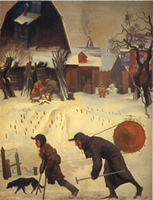Inequality
Social inequality occurs when certain groups in a society do not have equal social status. Aspects of social status involve property rights, voting rights, freedom of speech and assembly, access to health care, and education as well as many other social commodities.
Inequality is socially created by matching two different kinds of processes.
“The social roles in society are first matched to ‘reward packages’ of unequal value, and individual members of society are then allocated to the positions so defined and rewarded”
Social inequality is different from economic inequality, though the two are linked. Economic inequality refers to disparities in the distribution of economic assets and income. While economic inequality is caused by the unequal distribution of wealth, social inequality exists because the lack of wealth in certain areas prohibits these people from obtaining the same housing, health care, etc. as the wealthy, in societies where access to these social goods depends on wealth.
“The degree of inequality in a given reward or asset depends, of course, on its dispersion or concentration across the individuals in the population”
Social inequality is linked to racial inequality and wealth inequality. The way people behave socially, through racism and other forms of discrimination, tends to trickle down and affect the opportunities and wealth individuals can generate for themselves. Thomas M. Shapiro presents a hypothetical example of this in his book, The Hidden Cost of Being African American, in which he tries to demonstrate the level of inequality on the "playing field for blacks and whites". One example he presents reports how a black family was denied a bank loan to use for housing, while a white family was approved. As being a homeowner is an important method in acquiring wealth, this situation created less opportunities for the black family to acquire wealth, producing social inequality.
Quotations
- "An imbalance between rich and poor is the oldest and most fatal ailment of all republics.” – Plutarch[3]
- The mental and physical inequality of human beings insures that social classes will appear. The only worlds without social strata are the most primitive and the most advanced. A dawning civilization has not yet begun the differentiation of social levels, while a world settled in light and life has largely effaced these divisions of mankind, which are so characteristic of all intermediate evolutionary stages. - - Urantia text
References
- Grusky, David B. 2001. “The Past, Present and Future of Social Inequality.” Social Stratification: Class, Race, and Gender. Second Edition. Colorado: Westview Press.
- Shapiro, Thomas M. "The Hidden Cost of Being African American." Oxford University Press 2004.
- Plutarch Quotes
- Preston, Christine. 1992. Nagle College, Blacktown South. https://www.ptc.nsw.edu.au/scansw/socineq.html
External links
- Social inequality in US hits new record
- Global survey reveals growing anger over social inequality
- Social and Spatial Inequalities
